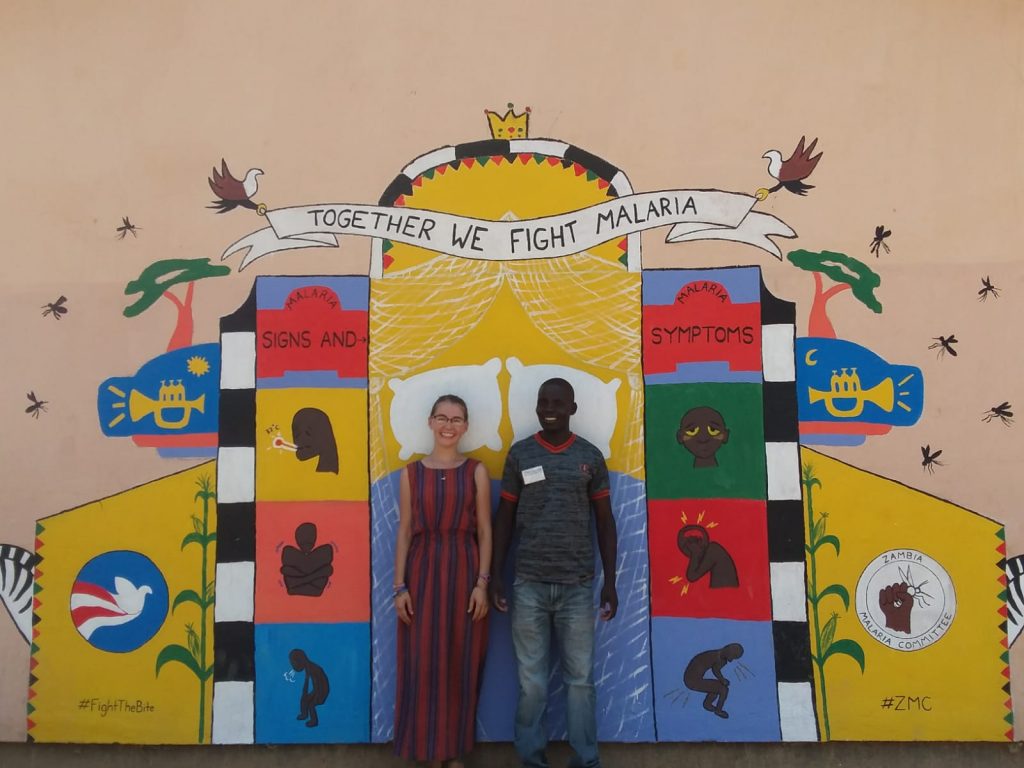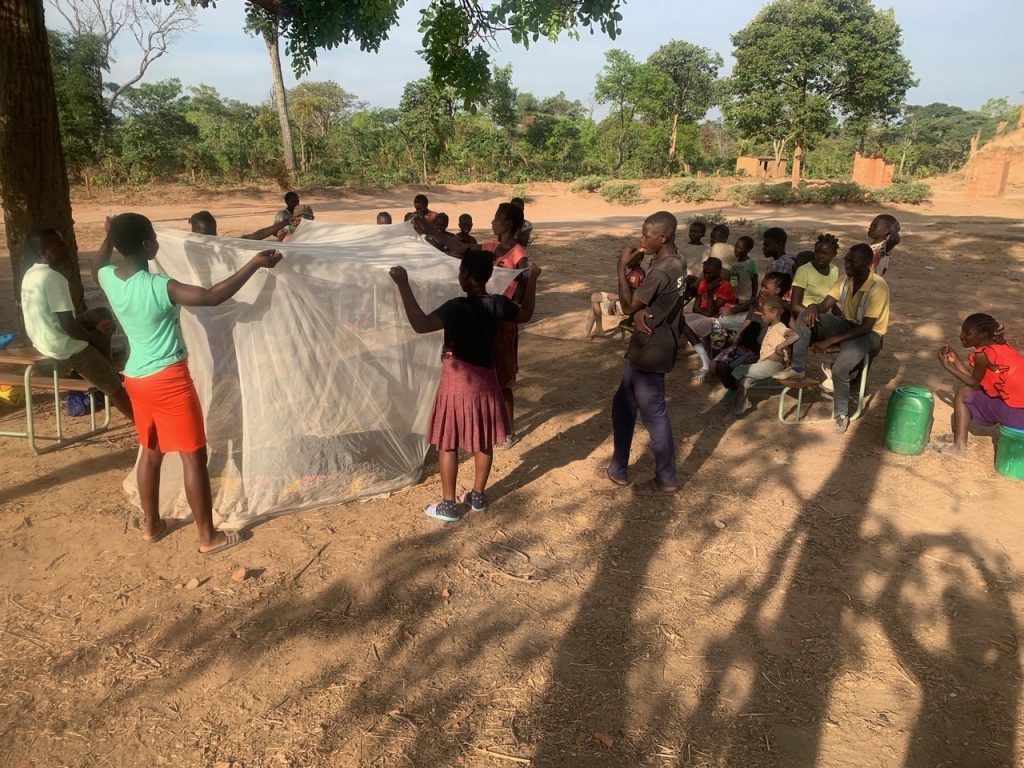While the rainy season might not sound like an ideal time for a bike ride, it is an important time to remind communities how to protect themselves from malaria. Standing rainwater and humid weather creates the perfect breeding ground for mosquitoes that transmit malaria. In Zambia, where malaria is a major cause of illness and death, these rains put 17 million at increased risk of infection.
As the rains came to northwest Zambia last December, John Hunzicker and Luckson Kasongo set off by bike to Kasempa Boma to teach school children how to prevent malaria by sleeping under a bednet all night, every night.
John is an environment sector Peace Corps volunteer (PCV) from Covington, Kentucky, serving in Kamalamba, Zambia. Luckson is from Zambia and serves as John’s local counterpart with the two working alongside each other throughout John’s service. On their December bike tour they reached about 300 students and teachers playing games to bust myths about malaria and encouraging proper treatment for those sick with malaria.
Other PCVs across the country also bike to schools or clinics to host malaria education programs. PCVs are welcomed by songs and skits and eager students ready to learn and take part in all the games and activities. In February, a PCV group in the Eastern province biked through the rain, puddles and even rivers to educate communities on malaria. Popped tires and mechanical issues did not stop them: They traveled a total of 100+ miles, visiting five villages, three schools, and two clinics.
These malaria bike tours are just one way PCVs are working with communities to fight malaria in Zambia. Through the Zambia Malaria Committee and collaboration with partners, PCVs work together to meet the Peace Corps’ goal of one malaria intervention, per volunteer, per service. The U.S. President’s Malaria Initiative (PMI) actively supports PCVs on malaria activities and implementing innovative malaria strategies in Zambia and 12 other malaria-endemic countries.
PMI helps train PCVs and their counterparts and provides educational materials to facilitate behavior change efforts. By collaborating on malaria awareness activities through projects like bike tours, soccer tournaments, and marathons, PCVs provide education and increase the uptake of malaria interventions.
Third-year PCV Lizzie Hielmann serves as a resource for all PCVs working on malaria across Zambia through her work on the Zambia Malaria Committee. In her PMI-funded position, she collects information on malaria-related activities that PCVs conduct.
Lizzie is proficient in the local language of Chichewa, thanks to her first two years of service. This allows her to not only help PCVs, but to provide support for community health workers and health facilities in pre-elimination districts in the Eastern province with a focus on strengthening data collection.

Lizzie and Emmanuel have traveled to seven outreach zones together to provide health education on malaria signs and symptoms, treatment and prevention.
“I love working with community health volunteers like Emmanuel,” Lizzie said. “I am always amazed at their endless enthusiasm and dedication toward ending malaria in Zambia.”
Since 2010, malaria deaths have declined by 76% in high burden provinces where PMI works. In the rural areas of Zambia where risk is highest, 77% of children sleep under bed nets—an increase from 42% in 2008. Whether it’s through malaria bike tours or implementing community health programs, PCVs like John and Lizzie are impacting lives and building local knowledge on malaria.
“The highlight of my malaria sessions is watching the kids have fun while learning. I’ve tried more traditional classroom methods for teaching and have seen that they take in more while they’re playing and having fun,” John said “Now when kids come and ask for my soccer ball or checkers I ask them questions about malaria and if they get it right, they can borrow the games! They love it!”

